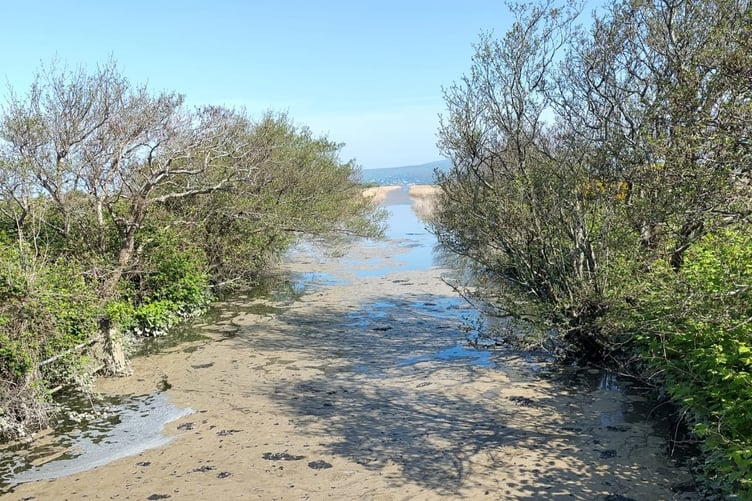Brown scum which was spotted on the river Leri is not sewage according to Natural Resources Wales (NRW).
Several residents reported concerns about the health of the river near Borth after a thick layer of scum was spotted on the surface, carrying bits of dedbris.
Two reports were lodged by locals on 30 April and 1 May last week, citing concern about a public health risk due to the Dŵr Cymru/Welsh Water Sewage Treatment Works nearby.
However after sending an officer to the scene twice, an NRW spokesperson stated there was “no evidence to suggest there had been a sewage discharge”.

One resident who flagged the issue was David Purdon, who claimed “the whole situation stinks”: “[The photos were] reported to the NRW incident line and the NRW Ceredigion Environment Team.
“No response as yet, but NRW resources are stretched wafer thin, as we know.
“There have been previous similar instances, although this one looks particularly bad, that we have reported, without any action being taken.”
NRW however say the scum was most likely tidal material, with a spokesperson adding: “On 30 April an NRW officer visited the Afon Leri in Borth just over an hour after receiving the report.
“They observed that most of the material recorded in the river by the reporter had dispersed.
“The river water was greenish and laden with estuarine mud rather than the white colouring associated with sewage discharges, and there was no odour to the water.
“Inspection of the remaining material floating in the river indicated it was tidal material, such as dead vegetation and silt.
“There were very high tides last week, and material appeared to have been pushed up the river by the high tide.
“No evidence was seen to suggest there had been a sewage discharge from the Borth Sewage Treatment Works, and the works were not discharging at the time.”
Dŵr Cymru declined to comment on this issue.
Though the river Leri didn’t top the ranks for river pollution this year, Ceredigion - becoming ‘Top of the Poops’ for recieving the most number of hours of sewage overflow out in England and Wales in 2024.
West Wales collectively came first, second, and third in the rankings for the longest overflows—Ceredigion Preseli was followed by Caerfyrddin and Dwyfor Meirionnydd, each receiving over 88,000 hours of overflow.
Wales overall came out on top with the worst levels of sewage overflow, all from Dŵr Cymru/ Welsh Water.
The river Teifi came fifth out of all rivers in England and Wales in receiving the most hours of sewage overflow.
On this, a Dŵr Cymru spokesperson drew attention to the heavy rainfall the country had endured, adding: “We are determined to play our part to improve water quality and in the next five years we are investing £2.5bn on projects to improve the environment.”





Comments
This article has no comments yet. Be the first to leave a comment.